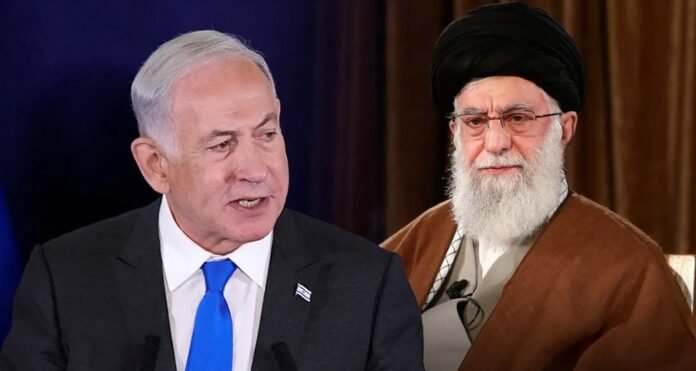What is currently happening between Israel and Iran represents the end of a phase of a regional cold war that has plagued the Middle East. The Middle East has remained and will remain a vacuum that no regional power has been able to fill alone, just as its various powers have been unable to sit down together to discuss this vacuum and find appropriate solutions.
It appears that Israel had been planning its strategy against Iran for many years, perhaps since the fall of Saddam Hussein’s regime in 2003, and the subsequent Iranian expansion throughout the region, east and west, north and south.
But the pressing question now, given the current situation, is: Does Israel only want to destroy Iran’s nuclear program? Or does it want to weaken the Islamic Republic regime to the point of overthrowing it?
The strategy of trimming nails first, then hitting the center second
Since Hamas’s operation against Israel on October 7, 2023, Tel Aviv has sought, as part of what it claimed would be a change in the face of the Middle East for the next 50 years, to turn the Gaza Strip into piles of rubble and introduce Hamas members into the tunnels. At the same time, it targeted Hezbollah in Lebanon and the Bashar al-Assad regime in Syria with airstrikes and effective assassinations. The result was Hezbollah’s acceptance of withdrawing from the confrontation, followed by the fall of the Assad regime.
This was the policy of clipping Iran’s claws that Israel began implementing with American and Western support. The atmosphere then became ripe for Israel to focus its efforts on striking the center, i.e., Iran itself. However, this also meant that Israel would engage in a direct war with Iran, the immediate and long-term consequences of which no one knew, even though Tel Aviv promoted it as an eradication of its threat-building capabilities from the ground up.
The Surprise Strike
Israel waited until the International Atomic Energy Agency’s (IAEA) Board of Directors issued a report condemning Tehran for its nuclear activities. The scenarios proposed were that this Asian country would be facing a new deadline for the reimposition of sanctions. Even with Washington’s decision to evacuate its personnel from some countries in the region, it was not expected that this would be a prelude to military action by Benjamin Netanyahu’s government against Iran.
The Course of the Current Military Operation Against Iran
The course of the current Israeli military operation against Iran began with a series of assassinations of Revolutionary Guard commanders and a number of nuclear scientists. The operation then entered a new phase, targeting Iranian skies by destroying all air defense systems, in addition to striking military infrastructure sites used for drones and civilian infrastructure related to the energy sector.
Despite Iran’s response, which included launching missiles at Israel, forcing its residents into shelters, and imposing a state of war on Israel and its citizens internally, the effects of the Israeli military operation remain clear in terms of its impact on Iran’s defensive capabilities, its potential for long-term resilience, and the dissipation of Tehran’s missile stockpiles, a key element in the deterrence equation.
What does fall of Iranian regime mean for region?
There is no disagreement about the centrality of the current Iranian regime within the political and security system of the Middle East. This regime, particularly during the last 20 years, has pursued foreign policies that have impacted the geography of the region, Therefore, its collapse by force will inevitably lead the Middle East to enter a new phase of formation, without broad outlines or rules. It is also well known that non-state actors will be a fundamental element of this process, and that some of its states will seek to possess nuclear weapons as a legitimate matter, fueled by the fluidity existing at the top of the international system.
But at the same time, if the Israelis said they would change the Middle East, and recently US President Donald Trump declared that he prevented the Tel Aviv government from assassinating Iran’s Supreme Leader, Ali Khamenei, then former Yemeni President Ali Abdullah Saleh said in statements to Al Jazeera after the fall of Saddam Hussein’s regime, He never imagined that this regime – Saddam – would be so powerful that the countries of the region would be unable to bring it down and summon an international coalition led by the United States to overthrow it. Could this be the solution to the current Iranian regime?.


